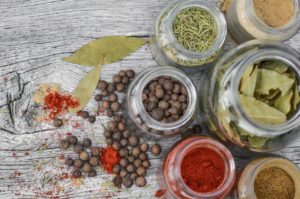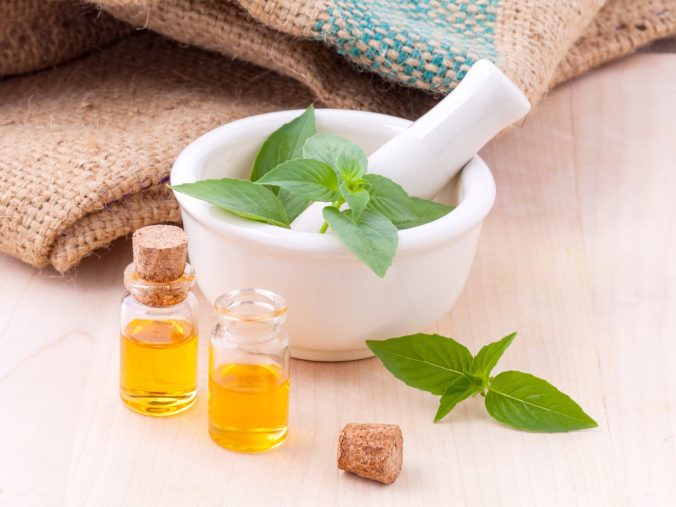When you are restless, can’t sleep, have racing thoughts, or otherwise feel on edge, chances are good that you’re dealing with some kind of anxiety. Anxiety is a struggle for many Americans, and for some people, the symptoms are so severe that the condition becomes debilitating.
Fortunately, it is possible to get relief for anxiety, and it doesn’t involve taking prescription drugs like benzodiazepines, which are risky substances that can lead to many unwanted side effects such as addiction. Benzodiazepine addiction can lead to withdrawal symptoms when the medication is stopped. It also carries the lethal risk of overdose. If you’re exploring safer options for anxiety relief, here are some natural (and much safer) alternatives to get relief from anxiety.
1. Chamomile
If you’ve ever felt more relaxed, at ease, and tired after drinking chamomile tea, there’s actually a scientific explanation for that. Chamomile is in the same family as daisies, marigolds, and chrysanthemums. It is most commonly used in the form of chamomile tea. Chamomile is a popular solution for anxiety because it is safe and effective in relieving anxiety. Another nice thing about chamomile tea is that it tastes great.
2. Green Tea
Green tea has been used in Asian cultures for thousands of years to provide stress relief. Studies that have been done on green tea have found that it can slow down a rapid heart rate. A study from the National Center for Biotechnology Information found that low-dose green tea intake has been seen to reduce incidences of atrial fibrillation in adult Chinese populations. It can also naturally lower your blood pressure levels. Many people have also reported reduced anxiety levels during studies when they consumed green tea. Like chamomile, green tea is considered safe and non-habit-forming.
3. Valerian
If you suffer from symptoms like insomnia or poor sleeping patterns because of anxiety, valerian might help. Valerian is considered a sedative in the family of anxiety-relieving medications. In addition to alleviating symptoms of anxiety, it is also commonly prescribed as a natural supplement to relieve symptoms of insomnia. In some countries, such as Germany, it is even prescribed by physicians for sleep problems.

4. Melatonin
Melatonin is primarily used for insomnia, but insomnia and anxiety can often go hand in hand. Melatonin is a hormone that is made by the pineal gland, but it can also be taken as a supplement in the event that your body is deficient, causing you insomnia. Getting better sleep is always a good solution for anxiety.
5. Lavender
Lavender is a beautiful and fragrant plant found in many household gardens. But in addition to adding nice color and scent to your front yard, lavender also has strong anxiety-relieving properties. Studies have previously found lavender to be such an effective natural stress reliever that lavender plants are now added to many public areas such as doctor’s office waiting rooms and hospital waiting rooms. In trial studies, a lavender-based bill created in Germany has been cleared for use as an anti-anxiety medication. Lavender pills are not yet available in the United States, but you can still reap the benefits of lavender in its natural plant form and in supplements.
6. Passionflower
Passionflower is another herb that has stress-relieving properties. Passionflower is considered to be a sedative, which means that it’s often used to cross-treat insomnia, too. Passionflower supplementation should be discussed with a doctor, as it can cause excessive levels of drowsiness if it’s used in conjunction with some prescription anxiety-relieving medications.
Recommended: How to Stop Worrying – 5 Everyday Things You Can Do to Make Life Easier
7. Kava
Kava, also called “kava kava” or “kava root,” is another natural form of anxiety relief. Kava is a bitter root that is native to the Pacific. In native Pacific cultures, kava is chewed to relieve stress, anxiety, and insomnia. Today, you can find kava in several forms, including supplements.
8. Lemon Balm
Since the Middle Ages, and especially in the Mediterranean region of the world, lemon balm has been used to naturally relieve stress and anxiety. It is also a mild sedative and has been found to help alleviate sleep problems too. In studies, people who took 600 MG of lemon balm extracts on a set schedule were found to be calmer than people who took a placebo sedative.
9. Exercise
Exercise, even if it’s just walking for 15 minutes a day, is another great form of natural anxiety relief. Getting exercise also produces endorphins, which reduce your pain levels and will make you feel better for awhile after your workout is finished. Even getting out for a few days a week can have tremendous benefits for anxiety.
10. Aromatherapy
Aromatherapy is the use of essential oils to calm you down and alleviate stress. You can even use your own home bathtub for an aromatherapy setting. Lavender is one of the most commonly used oils to provide anxiety relief. Other good options include jasmine, bergamot, and sweet basil.
11. Yoga and Meditation
There have been all sorts of studies done by reputable medical and academic communities like Harvard that have shown the positive effects both yoga and meditation can have on those who are suffering from anxiety. Meditation can help to clear your head and slow your thoughts. One cause of anxiety is rapid, worrying thoughts that spin around your head all day long.
Recommended: Why Meditation Is So Life Changing: 6 Reasons to Meditate Every Day
12. Cannabidiol Oil
Cannabidiol oil, also known as CBD, is a derivative of the marijuana plant. Unlike THC, which is the active ingredient in marijuana, CBD does not get you “high,” and it can be attained without a prescription at health food shops. There have been many studies that have shown how it can be beneficial for patients with anxiety.
If you’re suffering from anxiety, you don’t have to resort to dangerous medications for relief. There are many equally effective and safer natural alternatives available that can reduce your levels of stress and anxiety. But before starting any kind of supplement, be sure to consult with your physician, as he or she can guide you on the proper amount to take.

Please click below to subscribe and to follow us on social media:
Click here to follow us via E-mail!
Click here to follow us on Facebook!
Click here to follow us on YouTube!
Click here to follow us on Instagram!
Click here to follow us on Twitter!


 15 Best Inspirational Movies That Teach to Never Give Up
15 Best Inspirational Movies That Teach to Never Give Up
 50+ Best Self-Help Books That Will Change Your Life Forever
50+ Best Self-Help Books That Will Change Your Life Forever
 Short Motivational Stories of Failure and Success That You Must Know
Short Motivational Stories of Failure and Success That You Must Know
 10 Examples Where the Power of Positive Thinking Kicks Ass!
10 Examples Where the Power of Positive Thinking Kicks Ass!
 What to Do When Someone Is Better Than You? – Dealing with Jealousy
What to Do When Someone Is Better Than You? – Dealing with Jealousy

Leave a Reply